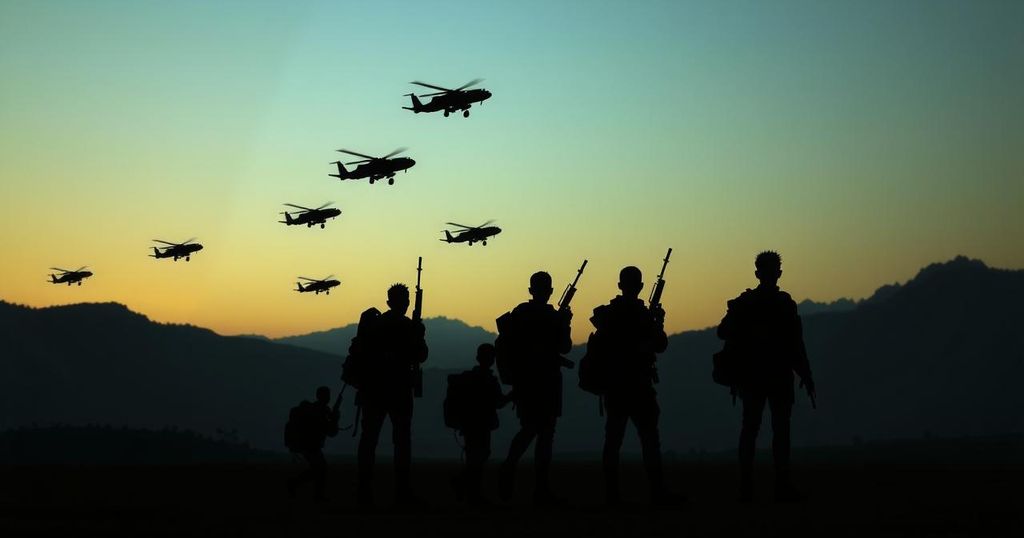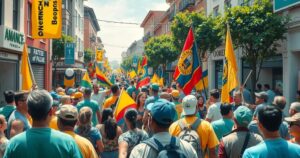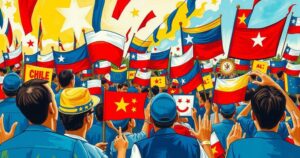Repatriation of South African Freedom Fighters’ Remains: Honoring Legacy and Closure

On Wednesday, the remains of 42 South African freedom fighters who died in exile were repatriated from Zimbabwe and Zambia. This initiative is part of a government program aimed at providing closure to the families of those who perished in the struggle against apartheid. Notable figures among the remains include Duma Nokwe, Florence Mophosho, and Basil February. A formal homecoming ceremony is scheduled with President Ramaphosa before the remains are returned to their families.
The remains of 42 South African freedom fighters, who perished in exile in Zimbabwe and Zambia during the fight against apartheid, were returned to South Africa on Wednesday. This significant event took place at the Waterkloof Air Force Base in Pretoria, where government officials and relatives gathered to receive the exhumed remains for their reburial in their homeland. This initiative is part of a governmental program aimed at providing closure to families of those who lost their lives while participating in the underground movements of the African National Congress (ANC) and Pan Africanist Congress (PAC). Prior to the dismantling of the apartheid system in 1994, numerous activists sought military training abroad and fled to neighboring countries such as Zimbabwe and Zambia to evade arrests by the apartheid authorities. It is notable that the ANC, led by Nelson Mandela, established its headquarters in Lusaka, Zambia, during this challenging period. Included in the remains brought back were prominent figures such as Duma Nokwe, Florence Mophosho, and Basil February. During a Heritage Day event, Deputy President Paul Mashatile expressed that the repatriation is an important educational effort to inform future generations about the sacrifices made during the anti-apartheid struggle. “As a national memory project, this initiative aims to commemorate, celebrate, educate, promote, preserve, conserve, and provide a durable testament to South Africa’s road to freedom,” stated Mashatile. President Cyril Ramaphosa is scheduled to hold a formal homecoming ceremony on Friday before the remains are entrusted to their grieving families for reburial. Furthermore, the South African government is actively working on repatriating the remains of additional citizens from various countries, including Lesotho, Ethiopia, Tanzania, and Angola, among others. Deputy Defense Minister Bantu Holomisa remarked, “I hope this process will culminate in getting more people in other countries who died under difficult conditions. We welcome them back to connect with their families.”
The repatriation of the remains of South African freedom fighters is a significant aspect of acknowledging the sacrifices made during the struggle against apartheid. During the apartheid regime from 1948 until the early 1990s, many South Africans were forced into exile as they sought to escape persecution or to continue their fight for freedom. The ANC and PAC emerged as leading organizations advocating for the end of apartheid, utilizing both political and armed resistance strategies. The return of these remains represents an effort by the South African government to honor the legacy of these freedom fighters and to provide closure to their families, as part of a broader reconciliation and healing process post-apartheid.
The return of the remains of 42 South African freedom fighters highlights the ongoing effort to honor the legacy of those who sacrificed their lives in the struggle against apartheid. This repatriation marks a vital step in providing families with the closure they deserve and serves as an important educational initiative for future generations. As South Africa continues to heal from its past, the recognition of these freedom fighters’ contributions is essential for fostering national unity and remembrance.
Original Source: www.newsday.com






